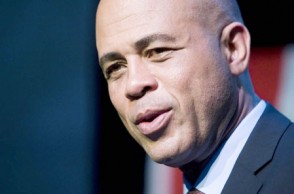PORT-AU-PRINCE, (Reuters) – Haiti’s electoral authorities said today they would urgently recheck vote tally sheets from the Caribbean country’s troubled presidential elections to try to defuse a dispute over the results that has triggered nationwide unrest.
The move followed violent protests since Tuesday by supporters of popular musician and presidential candidate Michel Martelly, who was eliminated from a deciding run-off in results released by the Provisional Electoral Council.

At least four people were killed in this week’s unrest, which has dimmed international hopes that the U.N.-backed elections held on Nov. 28 could create stability for Haiti as it struggles to recover from a devastating January earthquake.
In a statement, the electoral council said the review by a special commission, including international observers, would verify tally sheets of votes cast for the top three contenders — Mirlande Manigat, Jude Celestin and Martelly.
The council’s preliminary results from the Nov. 28 elections released late on Tuesday had showed former first lady Manigat and government technocrat Celestin going through to a final decisive presidential run-off in January.
Entertainer “Sweet Micky” Martelly had finished third, less than a percentage point behind Celestin, according to these results which have been rejected by Martelly.
He accuses outgoing President Rene Preval and his protege Celestin of rigging the results and thousands of his supporters have paralyzed the capital Port-au-Prince and other cities in mass protests that included attacks on public buildings.
Port-au-Prince was calmer today but flaming barricades blocked some streets and crowds of Martelly supporters still roamed around. U.N. Indian peacekeepers reinforced the guard at the electoral authority headquarters.
One person was shot dead and three injured today in a crowded earthquake survivors camp near the damaged presidential palace following a confrontation between supporters of Celestin and Martelly, witnesses said.
The Provisional Electoral Council said its decision to carry out a “rapid and exceptional” review of the results tally sheets took into account “the clear dissatisfaction of many voters, protests and acts of violence” since Tuesday.
The United Nations, United States and European Union had expressed concerns about what they called irregularities and inconsistencies in Tuesday’s election results.
Washington and Brussels said the results did not appear to tally with vote count projections by election observers that showed Manigat and Martelly going to a run-off.
The international community has called for calm and for any disputes to be resolved through peaceful, legal channels.
The commission to carry out the verification of the results tally sheets would include representatives of the electoral council, of the three candidates involved, national and international observers and representatives from the international community.
No time frame for the work was given. The electoral council is due to confirm results from the Nov. 28 elections first round on Dec. 20.
“It’s positive, certainly … It’s a reaction obviously to the problems created by the preliminary results,” said Ambassador Colin Granderson, head of the joint Organization of American States/Caribbean Community election observer mission.
The OAS/Caricom mission and the United Nations had initially cautiously endorsed the confused Nov. 28 vote as acceptable, despite noting many “irregularities.”
The voting, which saw scenes of disorganization, anger and frustration at many polling stations in the capital, took place in the midst of a seven-week-old raging cholera epidemic that has killed more than 2,000 people and is still spreading.
U.N. Secretary-General Ban Ki-moon and health authorities warned that the election unrest was stopping victims of the deadly epidemic from getting urgent treatment and risked disrupting the international medical response if it lasts.
“People are afraid to leave their homes, they are maybe staying at home when they should be reaching a clinic,” Christian Lindmeier, spokesman in Haiti for the Pan American Health Organization/World Health Organization, said.
“People can’t move, can’t work, can’t go to school. The stores are closed. They’ve blocked the country and some serious measures have to be taken so we can move again, get back to our lives,” said Cinqetoile Jazze, 35, a security guard.





